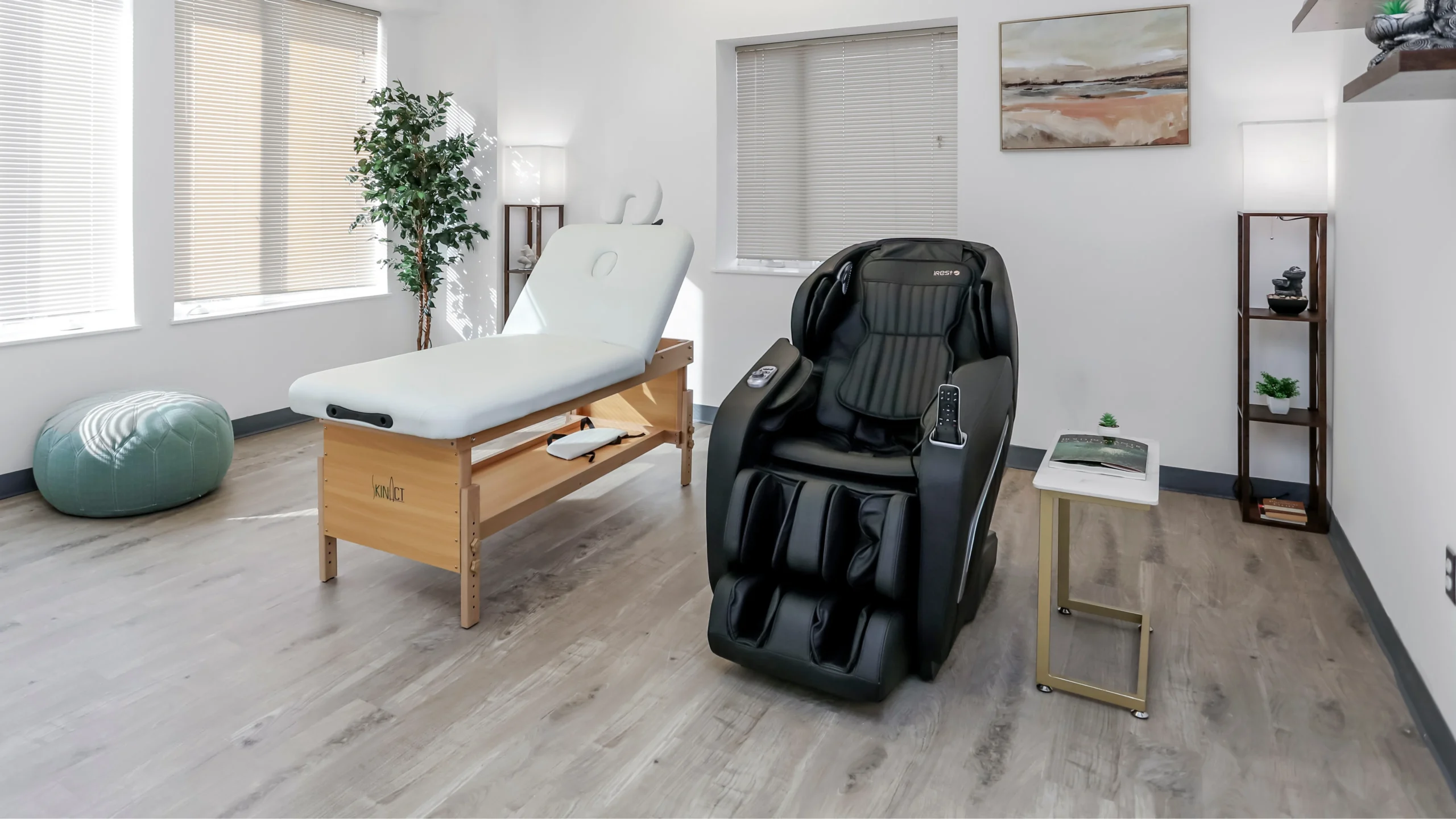Discover how our intensive outpatient programs in Fairfax, VA can help you find long-term healing.
Taking the first step toward recovery is a decisive move in the right direction. If you’re facing challenges with substance use or mental health, you don’t have to handle it by yourself. There’s support out there, and professional help explicitly designed for you can make a world of difference.
One option to think about is an Intensive Outpatient Program (IOP). It offers flexibility; many people find it a highly effective part of their recovery journey. It could be precisely what you need to help you move forward.
If you’re looking for something more supportive than regular outpatient care but aren’t in need of 24/7 supervision like inpatient treatment, Intensive Outpatient Programs (IOPs) could be just what you need. These programs are designed to help you manage difficult symptoms or handle multiple disorders. They also let you keep up with your daily tasks.
A good IOP will be tailored to your needs. It offers a high level of care without requiring you to stay in a treatment center.


Our vision is to be a leader in behavioral healthcare, transforming the lives of those affected by substance use and co-occurring disorders. We envision a future where recovery is attainable for everyone, where stigma is eliminated, and where holistic, individualized care is accessible to all. By advancing treatment methodologies, fostering community partnerships, and advocating for mental health and substance use disorder awareness, we aim to empower individuals to achieve their fullest potential and lead healthy, fulfilling lives.
We offer a variety of drug & alcohol detox options from trusted inpatient detox partners to our outpatient detox management services, Novara Recovery Centers aims to provide you with addiction treatment services in Virginia that are designed for your individual success in recovery. Keep reading to learn more about how detox works, what to expect from detox and how we can help you.
If you or a loved one is struggling with substance abuse or co-occurring disorders, Novara Recovery Center can help. We offer a variety of treatment options including inpatient treatment through our trusted network of residential partners. Learn more about how inpatient treatment works and how it can help you find long-term recovery from substance use.
If you are looking for a partial hospitalization program in Virginia, Novara Recovery is your best choice. Our flexible and accessible treatment programs offer you the benefits of inpatient treatment without the complicated residential stay. To learn more about what PHP is and how our partial day program can help, keep reading.
The intensive outpatient program (IOP) in Fairfax at Novara Recovery Center was designed to provide those struggling with substance abuse & co-occurring disorders with flexible treatment options that world around your personal schedule. Our intensive therapeutic solutions offers you a solid foundation for long-term success in addiction recovery.
The outpatient addiction treatment program at Novara Recovery Center aims to empower you with the tools needed in order to achieve recovery. Through our integrative therapeutic solutions, you or your loved one can expect to learn valuable life skills that lead to a transformative experience in healing and wellness.
We know that cost is a major factor for most people when seeking treatment for drug & alcohol abuse in Virginia. Novara Recovery Center works with most major insurance plans to help cover up to 100% of the costs associated with treatment at our program. To find out your personal options for treatment, get a free verification of insurance benefits right now by clicking the button below.









An Intensive Outpatient Program (IOP) helps people who need more support than regular outpatient therapy. It is for those who cannot commit to a full residential treatment program. Maybe you can’t take time off work or take care of family obligations, but you still need intensive treatment. That’s where an IOP can step in.
An IOP may not be the best choice if you have serious mental Illness. This is especially true if you need constant supervision or are in an unsafe environment. When you’re deciding whether an IOP is the right choice, talk it over with your therapist and doctor. They’ll help you determine if this care level is right for you or if residential treatment might be a better option.

When you notice you depend on something like alcohol or drugs, you may want to change. You need to choose between inpatient and outpatient recovery programs. Inpatient rehab modalities require you to stay at a treatment facility, especially during the early stages of your recovery.
These programs offer a structured, supportive environment that can be a game-changer, especially when starting treatment. The round-the-clock care and focus on your well-being can help you take those crucial first steps toward recovery.
However, inpatient care isn’t always the right fit for everyone. For some, the time commitment or lifestyle changes required can be a bit too much. It’s understandable. Life doesn’t always let us make big changes. Being away from home for a long time can feel overwhelming.
In situations like these, exploring other options that might work better for you is important. Here’s why intensive outpatient services have become so popular lately:
One of the best things about intensive outpatient care is its flexibility. Unlike inpatient options, IOPs let you get the treatment you need without having to live at a treatment facility. This flexibility allows you to schedule therapy sessions around your work, school, or family. This makes it easier to manage daily life while you focus on your recovery.
Taking time off from work for rehab can be tricky. The Family and Medical Leave Act (FMLA) protects your job if you need time off for treatment.
However, it can still be challenging. The leave can be unpaid. This may cause financial stress, especially if you are the main earner or have many bills to pay.
If you are the main caregiver for your children, going to inpatient rehab may not be possible. This is especially true if you don’t have someone you trust to care for them.
That’s where IOPs shine. They give you the chance to keep working and taking care of your family while still getting the treatment you need.
With IOP, you can maintain your routine. You can also find a healthy balance between your recovery and personal life. This means you won’t need a long leave of absence.
Regarding cost, IOP is often the more affordable choice than inpatient treatment. Inpatient programs typically attract high costs due to around-the-clock medical supervision, lodging, and extra services. An outpatient program like IOP helps you save money. It is a budget-friendly choice that still offers quality care.
Data from the National Center for Drug Abuse Statistics shows that adult residential treatment can be expensive. It can cost more than $7,000 for each stay. When you consider inflation, this amount rises to nearly $9,800.
Meanwhile, outpatient options like IOP are far more budget-friendly. An intensive outpatient program costs around $3,582 per episode, or about $4,939 adjusted for inflation in 2022.
Other outpatient treatments, like non-methadone options, can be more affordable. They cost an average of $1,615, or $2,228 when adjusted for inflation. This makes IOP a cost-effective way to get quality treatment. It helps avoid the high costs of inpatient care.
When you finish inpatient treatment or a detox program, joining an Intensive Outpatient Program (IOP) can help your recovery. It ensures you have ongoing support as you work towards lasting recovery.
This type of care typically includes:
Building a strong support network is important. Connect with sober friends, spend time with family, and join activities that promote a healthy lifestyle. The more involved you are in continuing care, the better your chances are of staying on course and avoiding relapse. Following your aftercare plan and staying active in your recovery can greatly help you succeed in the long run.
An Intensive Outpatient Program (IOP) includes several key components that combine to create a well-rounded treatment plan. These therapies and services support your recovery and boost your overall well-being.
Individual therapy will be an important part of your journey in an Intensive Outpatient Program (IOP). In these one-on-one sessions, you will work closely with a licensed professional. They can help you deal with personal issues that might be too hard to discuss in group settings. This is your chance to explore the reasons behind your addiction.
You can also think about your treatment experience. Feel free to ask any sensitive questions you have.
Some of the evidence-based therapeutic approaches you might explore include:
These individual sessions are not just for talking. They are meant to give you extra support. They will help boost your motivation as you work for lasting change. You can anticipate meeting with your therapist one to two times a week or more if you need it.
Group therapy creates a space where you can truly feel accepted and supported. With skilled therapists leading the sessions, you will engage in talks that focus on your growth. You will learn new skills, gain insights, and process your experiences in a way that works for you.
You can learn, develop, and advance on your journey with every group session. After you leave, you will gain the knowledge and resources to better understand who you are and where you’re headed.
A well-designed treatment program should promote close family members’ participation in healing. Many intensive Outpatient Programs have family therapy or support sessions. These help loved ones understand the treatment path. They also learn how to offer support.
These sessions often aim to enhance communication, fortify family ties, and foster a healthier atmosphere for all. However, family involvement may vary depending on the specific IOP and the needs of the individual in treatment.
Family therapy helps to understand how your family works. It supports each member in taking care of themselves. It also teaches about substance use and treatment.
For many people, medication is important for their recovery. This is especially true for those with depression, anxiety, or a dual diagnosis.
Keeping track of your medications is vital to taking the right drugs at the proper doses. It also helps you monitor any side effects so they stay under control. This process can be a vital part of your overall treatment, aiding your progress in a more balanced and effective way.
Our caring professionals are standing by around the clock, ready to address all your questions.
The American Society of Addiction Medicine outlines a five-level approach to treatment.
They all aim to provide therapy and support. However, they differ greatly in cost, duration, structure, and other factors. A few key differences stand out when you compare IOP to inpatient care.
IOP offers a structured therapeutic environment while allowing you to live at home. It usually involves a few hours of treatment several days a week. However, it does not need constant supervision or overnight stays.
Inpatient or residential treatment services provide a higher level of care. They require a 24-hour stay in a facility. You live at the treatment center and get constant monitoring.
This is helpful for people who need more care. This includes those with severe addiction, mental health disorders, or other risk factors.
Intensive Outpatient Programs (IOP) offer much flexibility concerning the length of care. Your treatment could last anywhere from a few weeks to several months, depending on how you’re progressing and what you need. IOP usually includes several sessions each week. The great thing is you can still manage your daily tasks, like work or school.
On the other hand, inpatient rehab for drug or alcohol addiction requires a more considerable commitment. These programs generally run from 30 to 90 days or even longer.
If budget is a concern, IOP is generally more affordable than inpatient care. You don’t have to pay for a place to stay at the treatment facility. This makes it a more affordable choice while still offering great care.
If you decide to enter an Intensive Outpatient Program, here’s what you can expect during your treatment.
Before starting any treatment, you’ll need to have an intake appointment with your care team. This is your chance to meet with a doctor or mental health professionals. You can talk about how you feel physically, mentally, and emotionally.
They’ll ask about your substance use—how often it happens, what it looks like for you, and how it’s impacting your daily life. You might also have a drug test and a physical exam during this time.
It’s normal to feel uneasy answering personal questions in a questionnaire. But remember, it’s not about invading your privacy.
It’s about giving your care team the information they need. This helps them create a treatment plan just for you. The focus here is on support, not judgment. Your team is there to encourage you as you take that first important step toward healing.
Therapy is a core part of an IOP; you’ll attend group and individual sessions.
In group therapy, you’ll connect with others facing similar struggles. This can be powerful because it helps you realize you’re not alone—and you can learn from the experiences of others.
Individual therapy is your chance to focus on your healing. This one-on-one time with a counselor helps you explore your challenges. You can also address issues like trauma and work toward your goals.
You’ll also spend time in relapse prevention, learning practical strategies to avoid falling back into harmful behaviors.
A support group offers a safe environment where you can share your experiences without judgment.
Being part of a support group gives you access to valuable resources, new coping tools, and lasting connections. These elements are key for building resilience and maintaining progress on your path to recovery.
Some prescription drugs approved by the FDA for MAT (Medication-Assisted Treatment) are very important. They help many people recover. If this applies to you, your healthcare team will help you take the right medications and the correct doses. Your doctor will help you find the best options to support your mental health and recovery, keeping you on track as you move forward.
Intensive Outpatient Programs (IOP) are a popular and effective option for treating substance use disorders. Research on IOPs is limited, especially in recent years. However, more studies are looking at the factors that help improve client engagement, retention, and outcomes in outpatient settings.
Intensive Outpatient Programs (IOP) have become a popular choice for treating substance use disorders. They offer the flexibility to get support while still maintaining your daily routine.
There hasn’t been much research on IOPs lately. However, studies show they can be very effective. This is especially true when certain conditions are met.
Research on IOPs may not be as extensive as some wish, but key findings show these programs can be very successful. They work best when tailored to meet your specific needs.
Client Satisfaction Plays a Huge Role
A big predictor of success in an IOP is how satisfied clients are with their treatment. It may sound simple, but studies have shown that you’re more likely to stick with the program when you feel heard and supported. Providers who actively check in and adjust the treatment plan based on feedback tend to see better engagement and long-term success. Higher satisfaction often leads to better retention, especially as the program progresses.
Support Networks Are Key
Joining a therapy group or going to 12-step meetings while you’re in IOP can make a huge difference. Research shows that people who use support systems are less likely to relapse into substance abuse. They are also more likely to stay strong in their recovery.
Being around others who get what you’re going through is a powerful reminder that you have backup on this journey. That sense of community can keep you motivated to stay on track.
IOP is Part of the Bigger Picture
Think of IOP as one piece of your overall recovery plan. It’s most effective when it’s used in combination with other treatment options. Moving from a more intensive care program to a less intensive one, like IOP, can help you stay on track in your recovery. Your treatment team will consider your progress, risk of relapse, and other factors when deciding the next steps in your treatment.
Job Stability Can Help
Interestingly, job stability has been shown to play a role in recovery success. Having a steady job and going to work regularly can help you feel more secure. A stable work life can improve your chances of finishing treatment and staying sober over time. Some IOPs even include vocational support or connections to job resources, which can make a huge difference.
Involvement in Your Treatment Matters
Feeling involved in your treatment plan can truly change the game. Studies show that being part of decision-making helps you stay engaged. This includes choosing your therapy or sharing your thoughts on treatment. This “shared decision-making” method has led to better treatment results and a stronger commitment to recovery.
IOPs are very effective in treating many problems. These include substance use, depression, anxiety, and eating disorders. A study found that people who finished an IOP for substance use stayed sober 50% to 70% of the time six months later. Even more promising is that those who stick with the program until the end will see better results.
Another study by McKay and colleagues highlighted how IOPs are particularly beneficial for those dealing with depression. Clients in these programs often see big improvements in their symptoms. They also develop better-coping skills and enjoy a higher quality of life.
The success of IOP hinges on your commitment to following the treatment plan. To make lasting changes, it is important to attend every session. Engage in group therapy and use what you’ve learned.
If you have chosen to join an intensive outpatient program (IOP), you are not alone. Many people feel ready to face life’s challenges. Many people who have completed IOP say it helped them learn new coping skills. They also say it helped them manage their emotions better and stay focused on their recovery.
As you begin the program, you will have a few key expectations to remember. These aren’t just rules—they help you make the most of your time and effort. Ignoring them could make it harder for you to stay on track, so taking them seriously is important. Here’s what’s expected of you:
These may sound simple, but we know it’s not always easy. The good news is that making an effort to stay open, honest, and willing to try will make a difference. It’s all about building a stronger foundation for a life in recovery. So, take it one step at a time, and remember—you’ve got this!
If you are having trouble with substance use, help is available. The Intensive Outpatient Program (IOP) at Novara Recovery Center in Fairfax, VA, could be a good option for you. It can support you in starting your recovery journey.
Our program is designed to support you every step of the way. We focus on what works for you. We offer a personalized approach to help you face your challenges. Our goal is to help you create a healthier and more rewarding life.
We’re here to help you through this. If you think our IOP might be a good fit for you, reach out today. Let’s talk about how we can support you on your path to recovery. You can contact us by calling (703) 705-7870, emailing info@novararecovery.com, or visiting us at 2815 Old Lee Hwy Floor 2, Fairfax, VA 22031.
Take that first step—we’re ready when you are.
Substance Abuse Intensive Outpatient Programs: https://pmc.ncbi.nlm.nih.gov/articles/PMC4152944/
About The ASAM Criteria: https://www.asam.org/asam-criteria/about-the-asam-criteria
Family and Medical Leave Act: https://www.dol.gov/agencies/whd/fmla
https://www.ptsd.va.gov/family/how_help_emdr.asp#
Eye Movement Desensitization and Reprocessing (EMDR): https://drugabusestatistics.org/cost-of-rehab/
Substance Abuse Intensive Outpatient Programs: https://pmc.ncbi.nlm.nih.gov/articles/PMC4152944/
Written By:

Mental Health Writer
Geoffrey Andaria is a seasoned writer and editor specializing in mental health content. With a B.A. in English and Journalism, he possesses a solid foundation in crafting freelance articles and conducting research. Geoffrey has also completed courses in social work. He dedicates himself to providing valuable and informative content for individuals impacted by mental health challenges and addiction.
Medically Reviewed By:

Expert Contributor
Dr. Williams is currently a board member for two non-profit service organizations. He holds a Master’s degree in Human Services from Lincoln University, located in Philadelphia, Pennsylvania.
He possesses a Ph.D. in Clinical Psychology from Union Institute and University, located in Cincinnati, Ohio. He holds a license to offer addiction counseling in both New Jersey and Connecticut. Additionally, he has submitted an application to become a licensed psychologist in New Jersey.






2815 Old Lee Hwy Floor 2, Fairfax, VA 22031